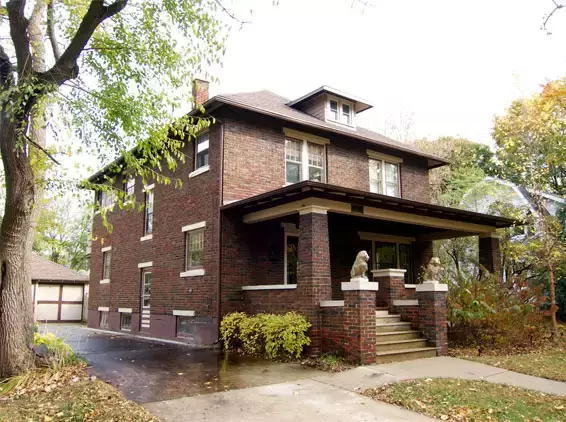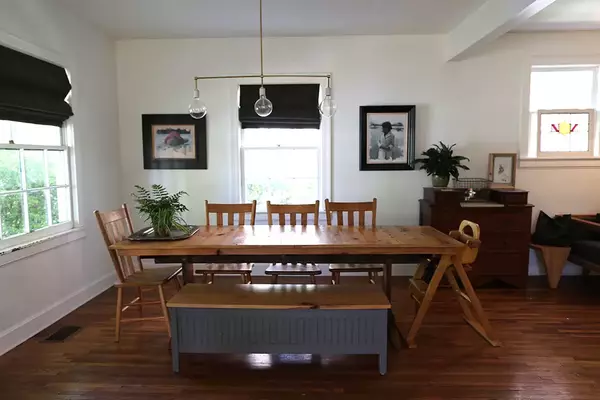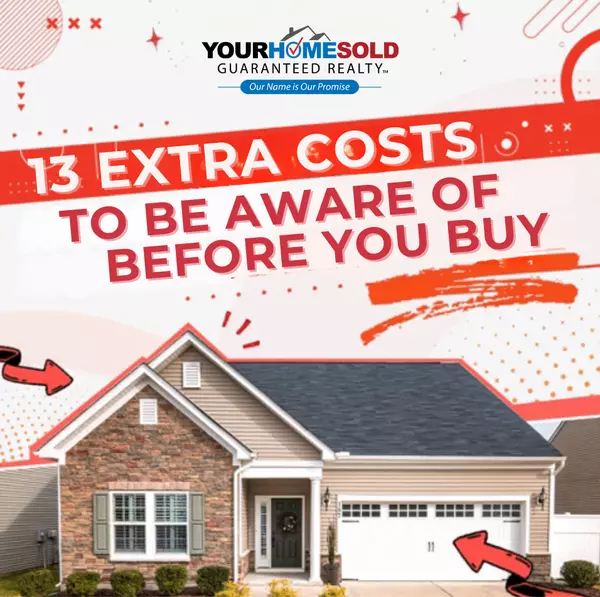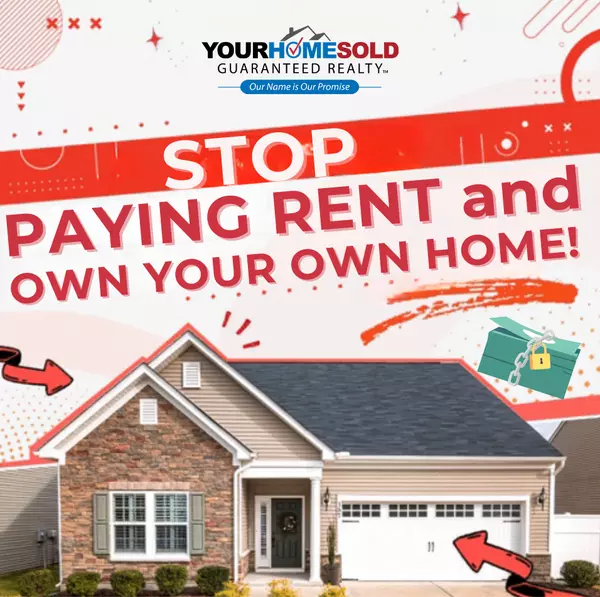
Stop Paying Rent
How To STOP PAYING RENT And Own Your Own Home Don’t Pay Another Cent in Rent to Your Landlord... It’s a dream we all have—to own our own home and stop paying rent. But if you’re like most renters, you feel trapped within the walls of a house or apartment that doesn’t feel like yours. How could it when you’re not even permitted to bang in a nail or two without a hassle. You feel like you’re stuck in the renter’s rut with no way of rising up out of it and owning your own home. Don’t Feel Trapped Anymore It doesn’t matter how long you’ve been renting, or how insurmountable your financial situation may seem. The truth is, there are some little known facts that can help you get over the hump, and transfer your status from renter to homeowner. With this information, you will begin to see how you really can: save for a downpayment stop lining your landlord’s pockets and stop wasting thousands of dollars on rent There are many important issues you should be aware of that affect you as a renter. Why on earth would you continue to lose thousands by throwing it away on rent when, with your agent, you could take a few minutes to discuss your specific needs so that you can stop renting and start owning. This conversation costs you nothing. And, of course, you shouldn’t have to feel obligated to buy a home at the time you review this. But by taking the time to explore your options, and learn about the ways you can afford to buy a home, think how prepared and relaxed you’ll be when you are ready to make this important step. 6 Little Known Facts That Can Help You Buy Your First Home The problem that most renters face isn’t their ability to meet a monthly payment. Goodness knows that you must meet this monthly obligation every 30 days already. The problem is accumulating enough capital to make a downpayment on something more permanent. But saving for this lump sum doesn’t have to be as difficult as you might think. Consider the following 6 important points: 1. You can buy a home with much less down than you think. There are some government programs (such as the first time buyer programs) to help people get into the housing market. You can qualify as a first time buyer even if your spouse has owned a home before as long as your name was not registered. Ensure your real estate agent is informed and knowledgeable in this important area and can offer programs to help you with your options. 2. You may be able to get your lender to help you with your downpayment and closing costs. Even if you do not have enough cash for a downpayment, if you are debt-free, and own an asset free and clear (such as a car), your lending institution may be able to lend you the downpayment for your home by securing it against this asset. 3. You may be able to find a seller to help you buy and finance your home. Some sellers may be willing to hold a second mortgage for you as a “seller take-back”. In this case, the seller becomes your lending institution. Instead of paying this seller a lump-sum full amount for his or her home, you would pay monthly mortgage installments. 4. You may be able to create a cash downpayment without actually going into debt By borrowing money for certain investments to a specified level, you may be able to generate a significant tax refund for yourself that you can use as a downpayment. While the money borrowed for these investments is technically a loan, the monthly amount paid can be small, and the money invested in both home and investment will be yours in the end. 5. You can buy a home even if you have problems with your credit rating. If you can come up with more than the minimum downpayment, or can secure the loan with other equity, many lending institutions will consider you for a mortgage. Alternatively, a seller take-back mortgage could also help you in this situation. 6. You can, and should, get preapproved for a home loan before you go looking for a home. Preapproval is easy, and can give you complete peace-of-mind when shopping for your home. Mortgage experts can obtain written preapproval for you at no cost and no obligation, and it can all be done quite easily over the phone. More than just a verbal approval from your lending institution, a written preapproval is as good as money in the bank. It entails a completed credit application and a certificate which guarantees you a mortgage to the specified level when you find thehome you’re looking for. Consider dealing only with a professional who specializes in mortgages. Enlisting their services can make the difference between obtaining a mortgage and being stuck in the renter’s rut forever. Typically, there is no cost or obligation to enquire
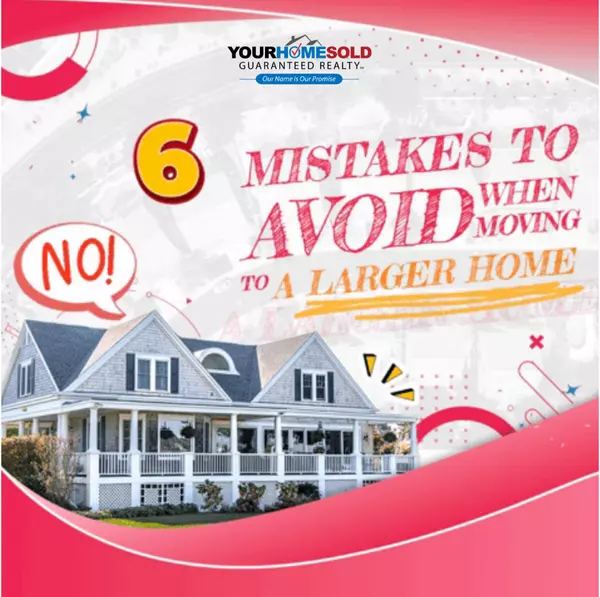
Moving Up?
6 Mistakes to Avoid When Trading Up to a Larger Home 6 Mistakes to Avoid Unlike the experience of buying a first home, when you’re looking to move-up, and already own a home, there are certain factors that can complicate the situation. It’s very important for you to consider these issues before you list your home for sale. Not only is there the issue of financing to consider, but you also have to sell your present home at exactly the right time in order to avoid either the financial burden of owning two homes or, just as bad, the dilemma of having no place to live during the gap between closings. Six Strategies In this report, we outline the six most common mistakes homeowners make when moving to a larger home. Knowledge of these six mistakes, and the strategies to overcome them, will help you make informed choices before you put your existing home on the market. 1. Rose-coloured glasses Most of us dream of improving our lifestyle and moving to a larger home. The problem is that there’s sometimes a discrepancy between our hearts and our bank accounts. You drive by a home that you fall in love with only to find that it’s already sold or that it’s more than what you are willing to pay. Most homeowners get caught in this hit or miss strategy of househunting when there’s a much easier way of going about the process. For example, find out if your agent offers a Buyer Profile System or “Househunting Service,” which takes the guesswork away and helps to put you in the home of your dreams. This type of program will crossmatch your criteria with ALL available homes on the market and supply you with printed information on an on-going basis. A program like this helps homeowners take off their rose-coloured glasses and, affordably, move into the home of their dreams. 2. Failing to make necessary improvements If you want to get the best price for the home you’re selling, there will certainly be things you can do to enhance it in a prospective buyer’s eyes. These fix-ups don’t necessarily have to be expensive. But even if you do have to make a minor investment, it will often come back to you ten-fold in the price you are able to get when you sell. It’s very important that these improvements be made before you put your home on the market. If cash is tight, investigate an equity loan that you can repay on closing. 3. Not selling first You should plan to sell before you buy. This way you will not find yourself at a disadvantage at the negotiating table, feeling pressured to accept an offer that is below-market value because you have to meet apurchase deadline. If you’ve already sold your home, you can buy your next one with no strings attached. If you do get a tempting offer on your home but haven’t made significant headway on finding your next home, you might want to put in a contingency clause in the sale contract which gives you a reasonable time to find a home to buy. If the market is slow and you find your home is not selling as quickly as you anticipated, another option could be renting your home and putting it up on the market later - particularly if you are selling a smaller, starter home. You’ll have to investigate the tax rules if you choose this latter option. Better still, find a way to eliminate this situation altogether by getting your agent to guarantee the sale of your present home (see point number 5 below). 4. Failing to get a preapproved mortgage Preapproval is a very simple process that many homeowners fail to take advantage of. While it doesn’t cost or obligate you to anything, preapproval gives you a significant advantage when you put an offer on the home you want to purchase because you know exactly how much house you can afford, and you already have the green light from your lending institution. With a preapproved mortgage, your offer will be viewed far more favorably by a seller - sometimes even if it’s a little lower than another offer that’s contingent on financing. Don’t fail to take this important step. 5. Getting caught in the “Real Estate Catch 22” Your biggest dilemma when buying and selling is deciding which to do first. Point number 3 above advises you to sell first. However there are ways to eliminate this dilemma altogether. Some agents offer a Guaranteed Sale “Trade-Up” Program that actually takes the problem away from you entirely by guaranteeing the sale of your present home before you take possession of your next one. If you find a home you wish to purchase and have not sold your current home yet, they will buy your home from you themselves so you can make your move free of stress and worry. 6. Failing to coordinate closings With two major transactions to coordinate together with all the people involved such as mortgage experts, appraisers, lawyers, loan officers, title company representatives, home inspectors or pest inspectors the chances of mix-ups and miscommunication go up dramatically. To avoid a logistical nightmare ensure you work closely with your agent.

Cash For Your Home
How to Avoid Getting Stuck With Two Homes The Problem We’ve all heard the old saying about being caught between a rock and a hard place. Well, unfortunately, that’s where most homeowners find themselves when they decide to move from one home to another. The Real Estate Catch 22 You see, if you buy before selling, you could run the risk of owning two homes. Or, just as bad, if you sell first, you could end up homeless. That’s what is known as the Real Estate Catch 22, and for thousands of homeowners, it’s an extremely stressful position they find themselves in. “ If you buy before selling, you could run the risk of owning two homes...” How to Avoid The Real Estate Catch 22 “...or just as bad, if you sell first, you could end up homeless” This financial and emotional tightrope is one many homeowners feel they have to walk alone. However, you should seek out agents offering specialized programs that can eliminate the stress and worry associated with selling and buying another home. The Solution The Dilemma The biggest dilemma when considering purchasing another home is deciding whether to buy first or sell first. Either way is risky because you could end up owning two homes or no home at all. Let’s face it, the real estate market has become a tough environment for buyers and sellers alike. The fact is that it’s more difficult to get homes sold today and therefore it’s essential that real estate agents look for new and innovative ways to meet the demands of the market. The Solution A new and innovative program that some agents offer actually guarantees the sale of your home and takes away all of the worry and stress associated with selling and buying another home. Here’s How it Works 1. Your agent will prepare a total market analysis including a computerized print-out of all comparable home sales and listings in your area. 2. With this information you and your agent can determine a market value for your home. 3. This establishes your guaranteed price and list price which you will receive up front (in writing) before your home is marketed. 4. You are doubly protected because you know that your home will sell for the guaranteed price. However if you receive an offer from an outside buyer for more than the guarantee price you get the higher offer. 5. You can confidently look for your next home and immediately place a firm cash offer (not a conditional one) when you find a home you like because you know the minimum that your home will sell for and when you can expect to receive the money from it’s sale. 6. This service eliminates the usual stress and worry (the emotional roller coaster ride) of whether to buy first or sell first so you can avoid the risk of getting stuck with two homes or no home at all. Remember, not all agents are alike and you should consider only those that can offer you the most innovative marketing plan available to ensure that your needs are completely and properly met.
Categories
Recent Posts



